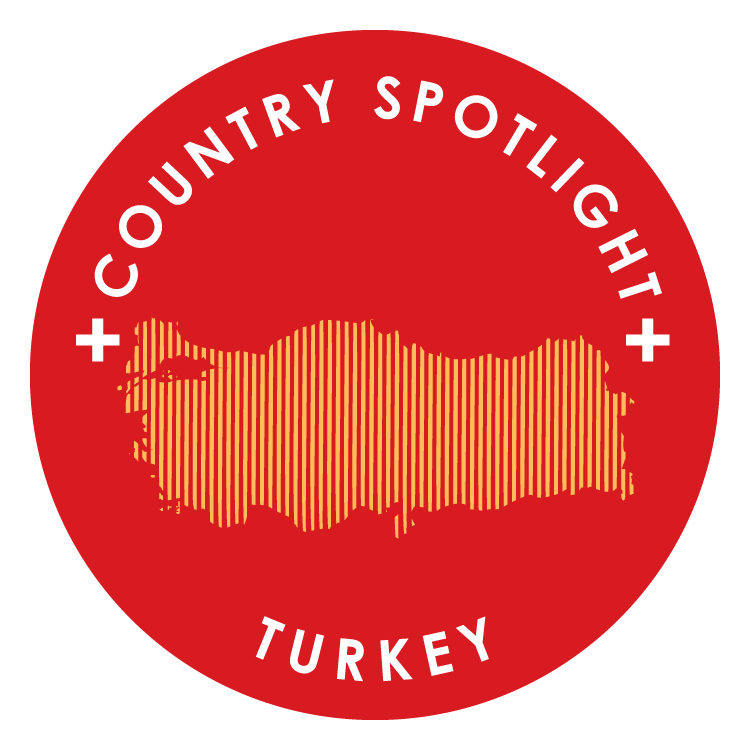Turkey is showing technological and economic growth across sectors

Investors are closely watching Turkey. With advancing technology and recent company collaborations in several Turkish industries, businesses are generating strong foreign interest. In fact, the UAE had set up a $10 billion fund for the country!
Several pre-investment deals have already been signed with companies operating in agriculture, defence and technology, petrochemicals, transportation and infrastructure, tourism and the health sector. Technology and Industry Minister Mustafa Varank believes Turkey will soon become a global technology player.
Motivating the vision of the “National Technology Move”, Varank emphasised Turkey’s ability to produce business models, products and services and become pioneers in the international arena. However, it would all come down to having a strong entrepreneurial ecosystem. “Hopefully, the number of unicorns emerging in our country, which is currently five, will reach ten by 2023. We have the ecosystem that can achieve this,” said Varank.
“We aim to share our work on mobility, smart life and health, 5G technologies and digitalisation as soon as possible. 2022 is a critical year in which our new strategies will start to be implemented,” he added.
We take a look at some of the recent advancements in the country that has generated investment interest.
Automotive and Aviation Action
Turkey’s automotive industry recently debuted a forward-thinking mobility solution that brings advanced electric, autonomous and connected technologies within one design sphere.
The home-grown brand Togg’s high-tech concept Use-Case Mobility has been designed to be intelligent, user-centric and empathetic to users. Togg aims to produce one million vehicles in five different segments by 2030, and it plans to launch its first mass production vehicle by the end of the year.
The company also revealed the country’s first electric SUV and an electric sedan. The battery-electric SUV is Turkey’s first home-bred vehicle and represents the culmination of Turkey’s progress in industrial technology. And despite the current harsh winter conditions, the testing process of the electric car continues at accredited test centres today.
Another automotive brand Chery entered the Turkish market this year. From engine to gearbox, core components to platform development, and traditional automobile technology to new ones, Chery will inspire local automotive entrepreneurs to take a similar leap of faith into technological innovation.
On the other hand, taking pages off of science fiction, the Turkish aviation industry is also keen on making flying cars a reality. According to IBA, the market for such vehicles will hit $21 billion in 2035.
While over 50 companies worldwide are developing several of these electric vertical take-offs and landing (eVTOL) prototypes, Turkey’s startup AirCar envisions improving road congestion with a network of flying taxis – fully electric and autonomous. According to the startup, each car will be able to accommodate two passenger luggage, which satisfies the general commuting needs of people.
Based in Istanbul and launched in 2017, AirCar has completed over a thousand small-scale tests, and full-size prototype tests had also started a year ago. Turkey’s National Space program has laid out ambitious goals that the country hopes to achieve by 2030. Tests of the hybrid rocket engine that is in the development process have been successful, and the lunar mission vehicle’s design and mission planning process has also commenced.
Banking On Turkey
Banking As A Service (BaaS) business model is rising l in the country. The Turkish Banking Regulation and Supervision Agency (BRSA) has recently published the Regulation on Operating Principles of Digital Banks and Service Model Banking that allows service banks to provide service model banking services only through domestically resident interface providers. Experts believe that the transitivity of the banking sector with other sectors in Turkey will increase in the upcoming years due to BaaS.
Turkey has caught the crypto bug too. For instance, VakifBank recently applied new blockchain technology in foreign trade. This project aims to accelerate foreign trade processes through smart contracts, strengthen data security, track through encryption and distributed ledger, and eliminate repetitive data sharing. The next phase is planned to import different documents in foreign trade into the system.
The 5G Fuel
New 5G-related efficient applications are being leveraged across industries, with added benefits of super-fast internet.
One of the country’s information and communication technology companies, Türk Telekom, recently signed an agreement with Huawei to work on 5G-ready networks and network applications to develop industrial applications. The two companies are set to share their strategic goals and vision to develop 5G networks and good network applications.
They will also test the digital transformation technologies that support 5G services and hope to improve the end user experience.
In addition, the companies also introduced an augmented reality (AR) game, HADO. With AR glasses and wearable sensors, it can be played by two teams in different places using a 5G connection.
Smart Agriculture
Turkey is the world’s 7th largest agricultural industry. Identifying the immense potential, the UAE recently signed an MoU with Turkey to take cooperation in agriculture, rural development, and the adoption of modern farming systems to the next level. The two countries have also decided to collaborate in agricultural research, the use of modern technology to boost food security, the promotion of joint agricultural ventures between their private sectors, and the development of specialised agricultural zones.
Several optimised tech solutions are entering the market. Smart Tractor Systems, one of the Agriculture 4.0 applications developed in Turkey with TARNET, a technology subsidiary of Turkish Agricultural Credit Cooperatives, was launched.
The project has already seen an autonomous tractor driving through the field. It can also be alerted through a 5G connected mobile application when any abnormalities are detected on the tractor’s route by performing video analysis with AI.
The Enterprise Technological Wave
The pandemic has urged companies to accelerate their automation and digitisation efforts to increase efficiency and achieve sustainable development.
To help businesses with this, MESS, Turkey’s largest employers’ association, established a technology centre called MEXT. The program offers training 250,000 people in Digital Literacy and Artificial Intelligence Academy programs. MESS is working with the Centre for the Fourth Industrial Revolution in Turkey to support this capacity building to shape governance.
According to IDC, big data analytics expenditure will grow by 8.1 per cent this year and reach $3 billion in the Middle East, Turkey and Africa region. The statistics reflect the countries’ regional organisation interest in enhancing business operations, customer engagement, and the technological growth driven by data and analytics.
Trendyol is Turkey’s first decacorn. A rapid grocery delivery pioneer, Getir, worth $7.5 billion, ranks second. Other startups like Hepsiburada and Dream Games also show potential with specific investment and business models.
Apart from eCommerce platforms, the country’s game developers are also entering the data-driven entertainment economy. After the success of Peak, Rollic also proved that great valuations could be achieved in less than two years. Dream Games, a data-driven mobile gaming startup, also reached a billion-dollar valuation in less than two years.
Last year, the Presidential Circular on the National Artificial Intelligence Strategy for 2021–2025 was drafted, drawing a roadmap for AI in the country.
“AI technologies, whose application area is increasing, are expected to have a greater impact on the global economic structure than the internet revolution,” said President Recep Tayyip Erdoğan. “We have the opportunity to add value to humanity as a whole by making a new techno-economic breakthrough blended with our deep-rooted civilisation experience by designing AI systems with an understanding that includes the development and operation of these systems per our common values.”
Taking the momentum forward this year, Blue.cloud, a cloud-only digital transformation company, partnered with the largest AI implementation services provider in Turkey, Koç Digital, a technology company of Koç Holding. Together, the organisations will accelerate AI innovations and improve predictive analysis in enterprise digital transformation.
KoçDigital is helping drive digital transformation efforts with AI and IoT solutions to derive breakthrough insights for enterprise digital journeys. KoçDigital has already implemented over 150 AI projects in various sectors and has developed strategic partnerships with Microsoft, SAS, Siemens, and Amazon.









